Dyson V11 Absolute vs Vax ONEPWR Blade 4: How does Vax’s budget cordless vac fare against Dyson’s mighty flagship?
Dyson? Vax? Dyson? Vax? Both clean up but one may clean you out

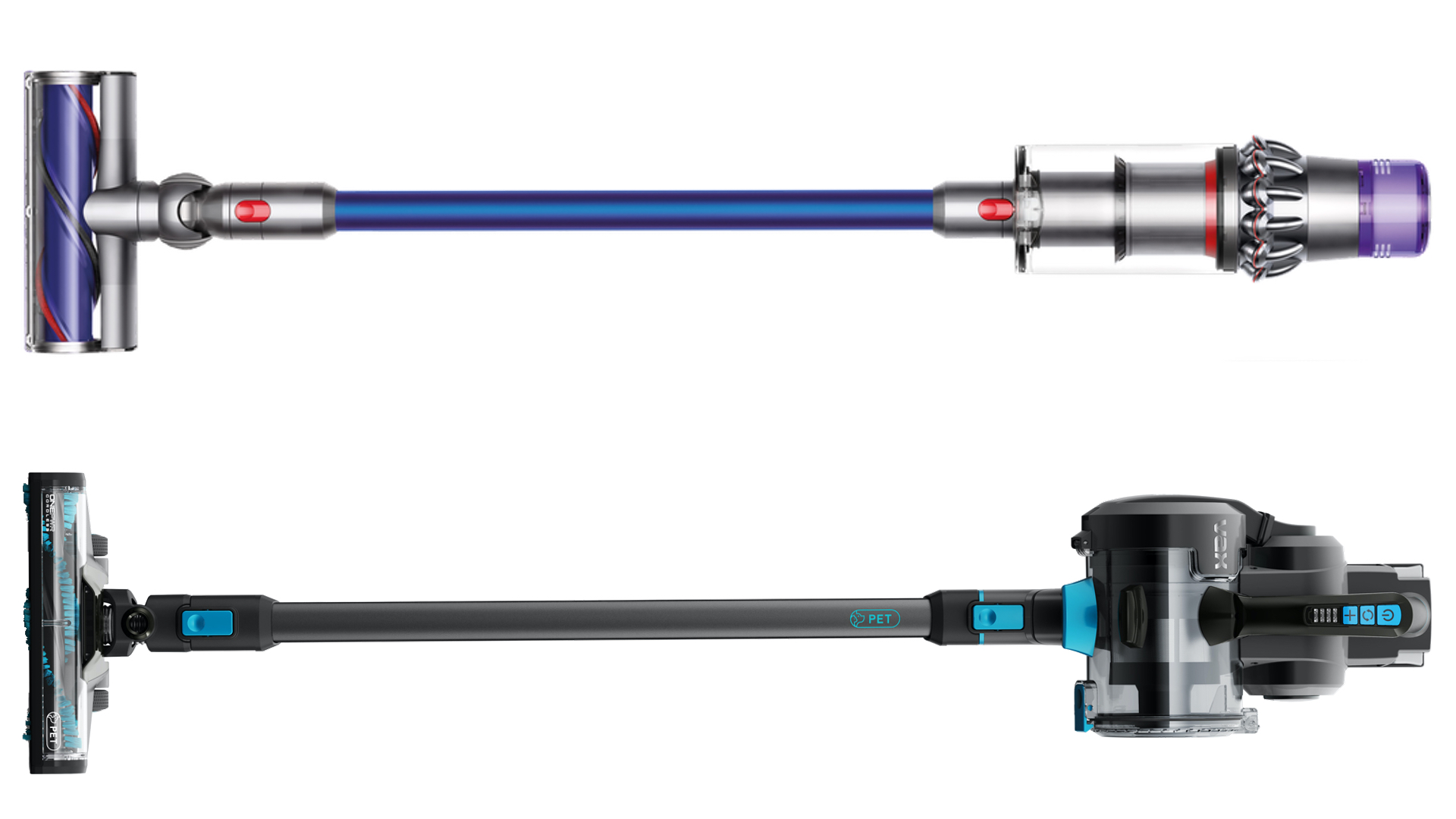
Get all the latest news, reviews, deals and buying guides on gorgeous tech, home and active products from the T3 experts
You are now subscribed
Your newsletter sign-up was successful
Let’s cut straight to the chase – in our opinion, the Dyson V11 Absolute is the Best Cordless Vacuum Cleaner or stick vac on the market. But is its high price (around £599) justified when pitted against a much cheaper competitor like the Vax ONEPWR Blade 4? Given that the Vax retails at a smidge under £220, that’s a whopping £379 price difference and you’re probably wondering what amazing things the Dyson V11 Absolute does that the Vax Blade 4 doesn’t.
The Dyson V11 is available in five different variants, ranging from £499 to £599. Two models (V11 Animal, £499) are exactly the same, but one comes in copper livery and the other purple. Both models are equipped with Dyson’s excellent Direct Drive brush head, a mini motorised tool and the same selection of detail attachments. Moving up a notch (£549), the V11 Torque Drive comes with the same small tools but instead of a Direct Drive head it has a Torque Drive head that adapts suction depending on the floor surface.
Heading further up the range we find the model we’re concentrating on here, the V11 Absolute which is available in two colour schemes – nickel/blue and gold. Both models retail at £599 and both come with a Torque Head, a Soft Roller head, a mini motorised tool and the same bunch of accessories.
So, now that’s cleared up, let’s get straight down to the nitty gritty and take a closer look at these two opposing dust busters in closer detail.
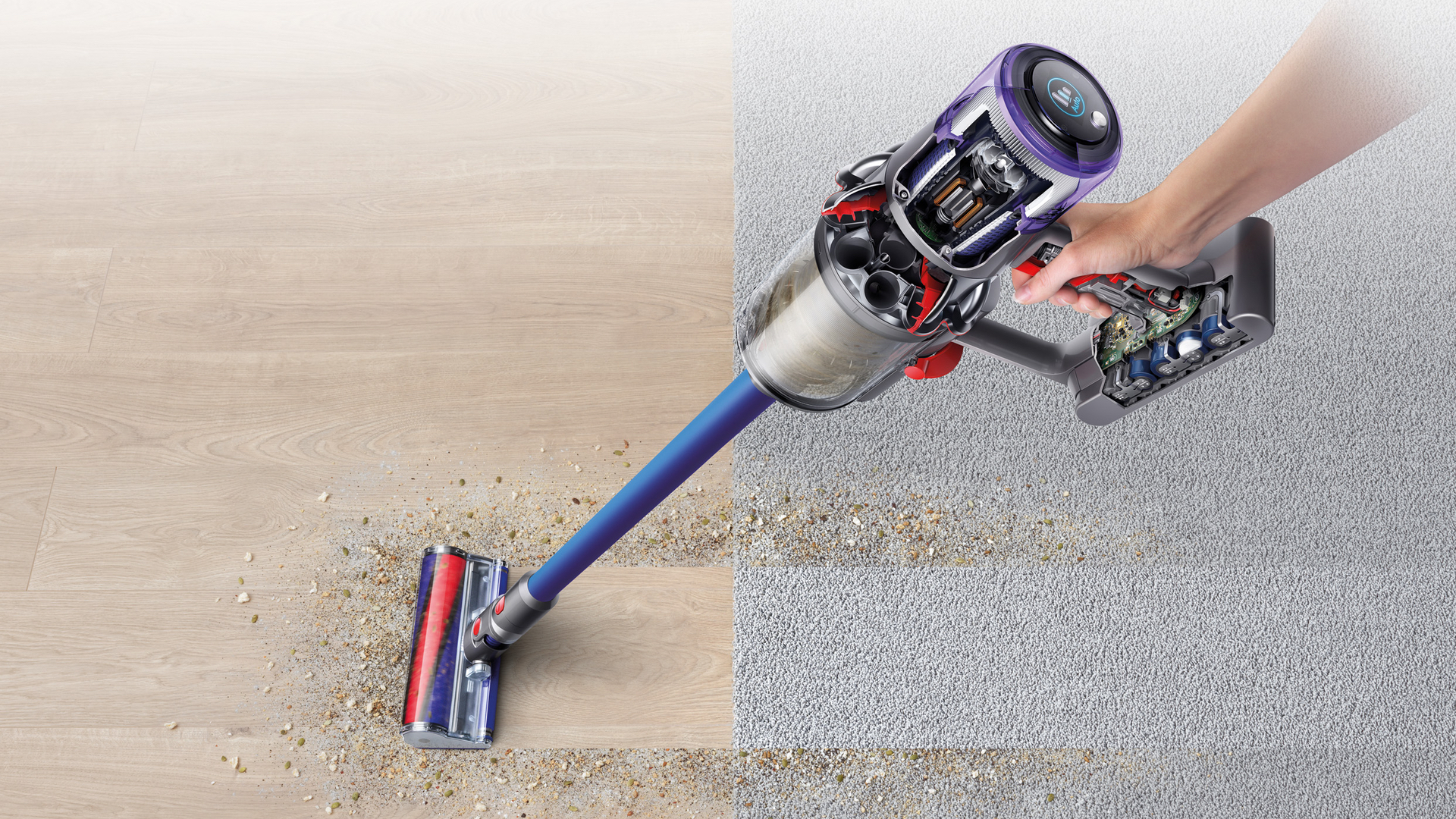
Dyson V11 Absolute unsheathed
Dyson V11 Absolute vs Vax ONEPWR Blade 4: Design
There’s no contest when it comes to design – the Dyson simply looks more elegant, from the choice of plastics and cool colour scheme to the streamlined shape of the in-line dust collector. The Vax, by comparison, looks a bit cockeyed with it’s horizontally-mounted dust bin.
Weight wise, both clock in at 3kgs. Well, actually the Vax is a gram more but who’s counting? You won’t feel any difference in weight when using it in floor mode though the Dyson V11’s handle is much more ergonomic – like the grip on a rifle, not that I’ve ever used a rifle. By comparison, the grip on the Vax Blade 4 doesn’t feel as comfortable and, for some strange reason, it feels heavier when using it to clean above head height. Maybe it’s the horizontal bin or something but the Vax just feels more clunky in the hand.
When it comes to evaluating the main suction tubes, the Dyson wins hands down. Where the Vax’s tube comes in dull boring grey, the Dyson’s is a gorgeous deep electric blue. Better still, if you opt for the ‘Gold’ V11 Absolute (same price) you get what can only be described as a shaft of gold; perfect for expats living in Dubai.
Get all the latest news, reviews, deals and buying guides on gorgeous tech, home and active products from the T3 experts
The Dyson V11 also trounces the Vax in the brush head department. The Vax’s head measures 22cm in width and the Dyson 25cm. This means the Vax will take a few more sweeps to complete the same task. No great shakes but thought you’d like to know.
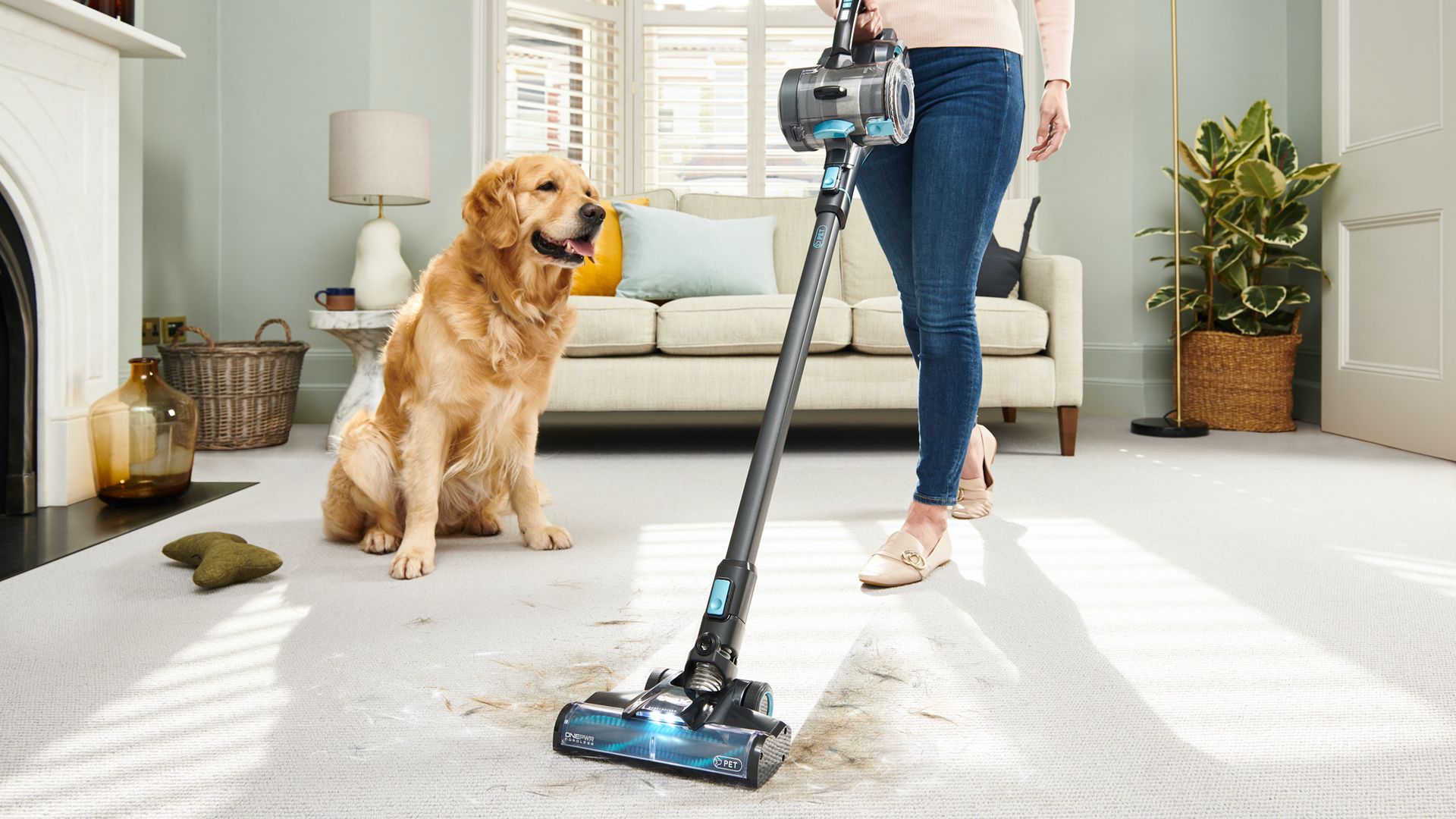
Vax ONEPWR Blade 4 in action
Dyson V11 Absolute vs Vax ONEPWR Blade 4: Features
The Dyson V11 monitors battery and motor performance in real time and reports its findings to a small LED screen on the rear of the filter holder. It also has a single button below the display that changes the suction power in three increments – Eco, Auto and Boost. Auto provides more than enough suction power and is also the best setting for battery efficiency.
This vac also features a Dynamic Load Sensor that can detect whether the bush head is on hard floors or carpet. You can actually hearing it working because the noise increases and decreases as you move from one surface to the other.
The Vax by comparison has just two levels of suction, plus a separate button that engages the motorised part of the brush head. At full pelt this vac makes quite a racket whereas the Dyson’s full-power mode has a slightly more pleasing whoosh.
Many cordless vacs are now being fitted with LED headlights that are far more useful than you might think, especially if you’re vacuuming in areas of low light. The Vax Blade 4 has a headlight but sadly it only comes on when you engage the motorised brush head. The Dyson V11 Absolute doesn’t come with any lights at all. In fact, none of Dyson’s cordless vacs comes with a headlight, but what’s the bet their next swathe of products do.
Dyson V11 Absolute vs Vax ONEPWR Blade 4: Tools for the job
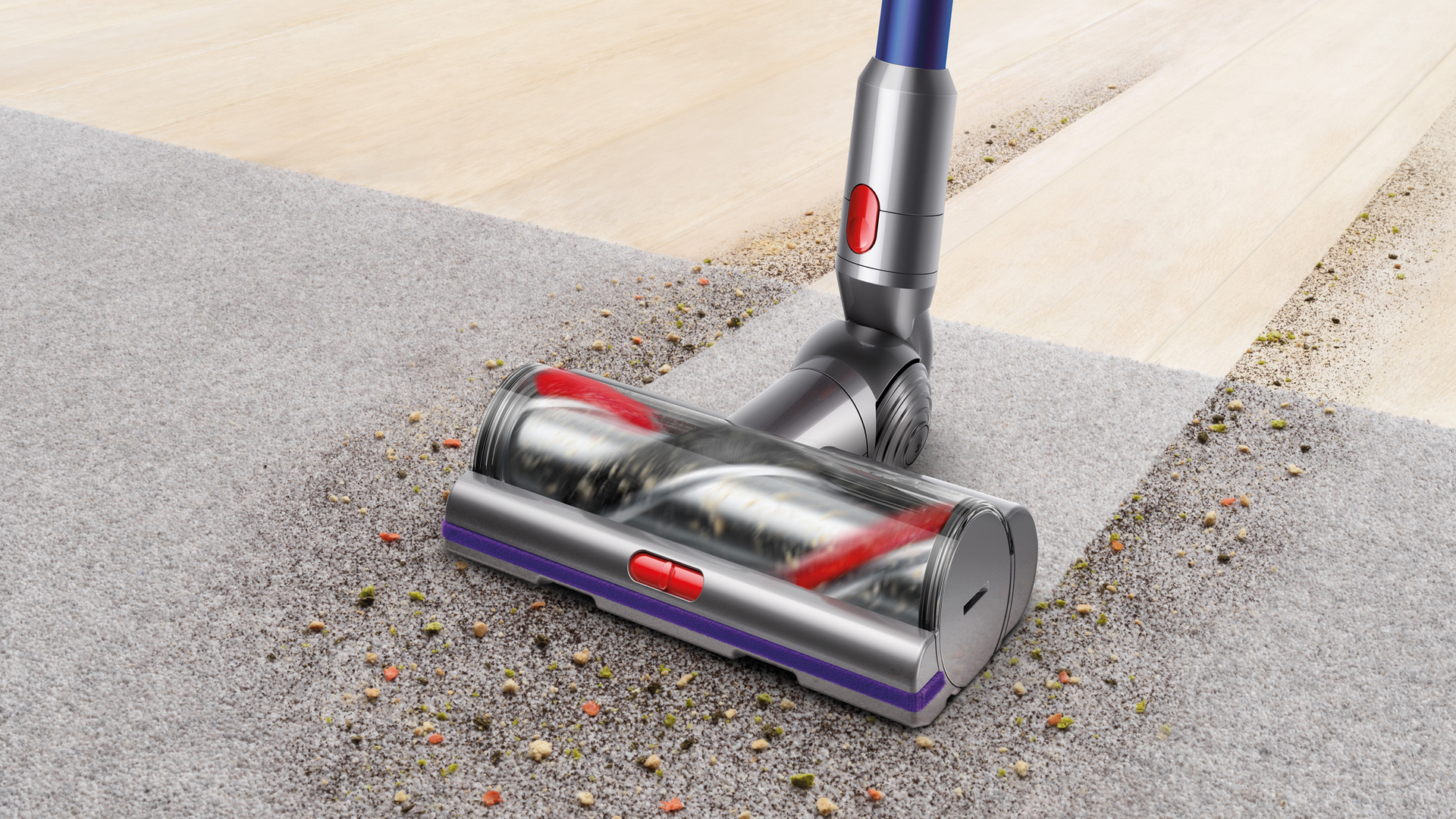
The Dyson V11 Absolute's multi-faceted Torque Drive brush head
The Dyson V11 Absolute comes with a full smorgasbord of tools – 25cm Torque Drive Motorhead, 25cm soft roller cleaner head, mini motorised tool, combination tool, crevice tool, soft dusting brush and a wand storage clip for the crevice and combination tools.
The nylon and carbon-bristled Torque Drive is the go-to head for pretty much all duties, whether it’s hard floor or carpet, while the soft velvety roller brush is the one to grab for hard floors since it buffs as it cleans. If using in handheld mode, then fit the mini motorised tool which is perfect for stairs and awkward areas. This tool is also a dab hand at removing hair from pet beds.
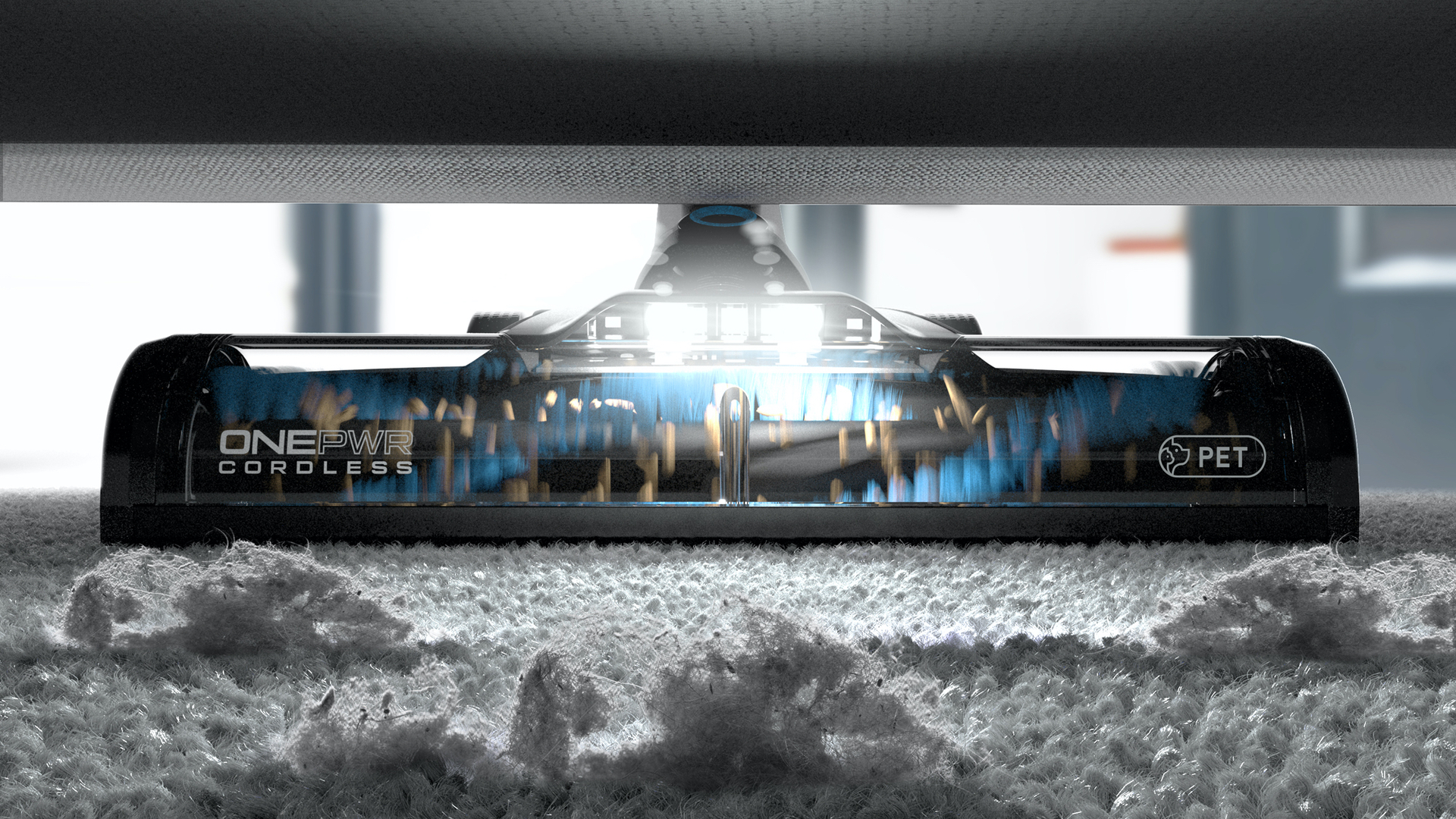
The Vax Blade 4's LED makes light work of dark places
Flipping to the other side of the coin, the Vax Blade 4 is equipped with a robust 22cm motorised brush head with integral LED headlight, or Dust Tracker as Vax calls it. Just be aware that you will need to physically activate the motor on the brush head by pressing a button on the handle or the light won't switch on. The Vax also comes with a crevice tool, a wand clip and a thin plastic wall mount – the battery is charged via a separate ONEPWR charger. And that, dear dude, is your lot.
Dyson V11 Absolute vs Vax ONEPWR Blade 4: Battery life
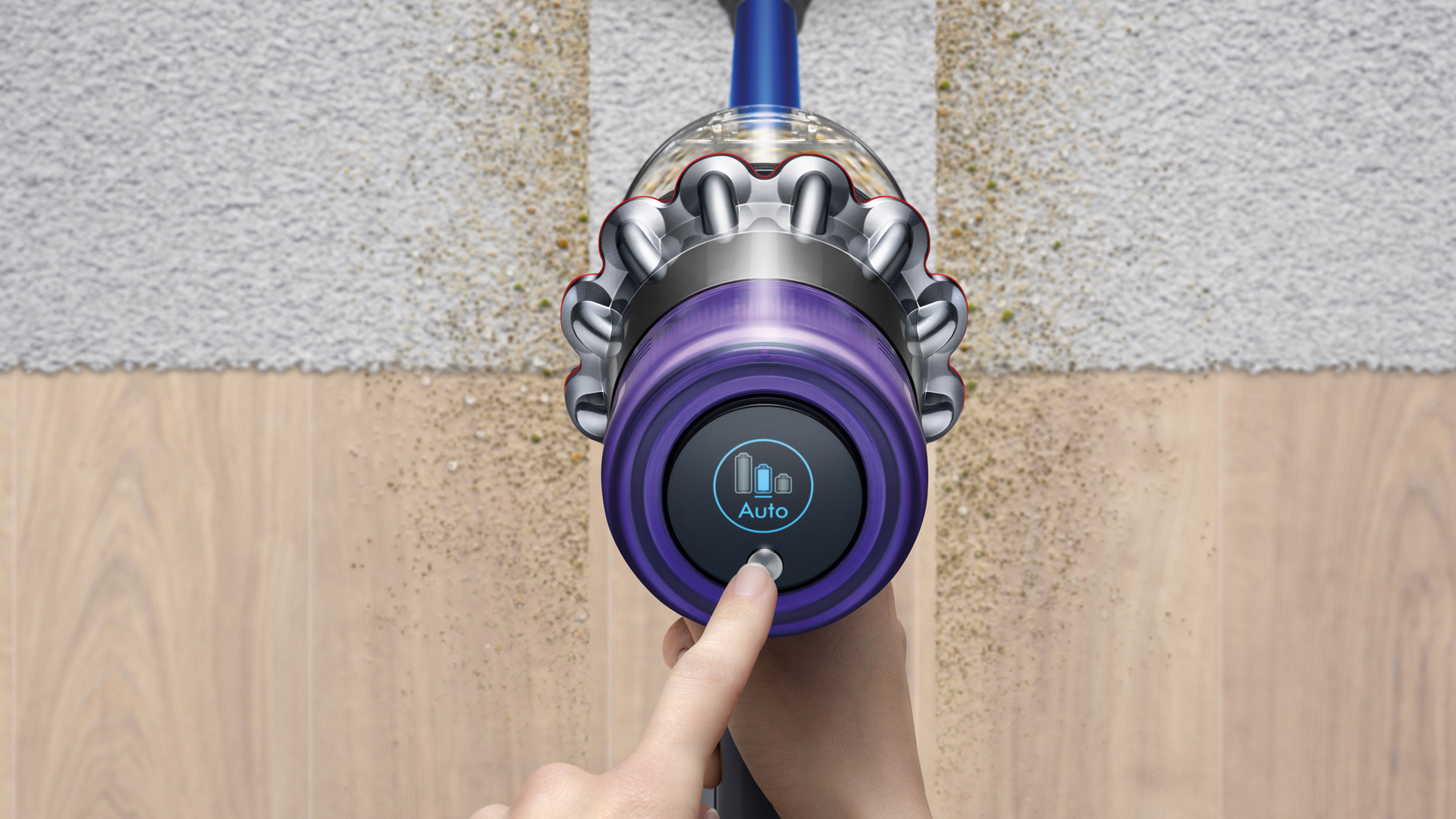
The Dyson has three levels of power and an excellent battery-management system
The V11 Absolute features a removable click-in battery that’s monitored using a clever algorithm that measures suction performance against battery consumption. You can reasonably expect about 60 minutes in Eco mode, 40 minutes in Auto and 15 minutes in Boost. You will hardly need to use Boost since Auto is sufficient for the vast majority of cleaning scenarios.
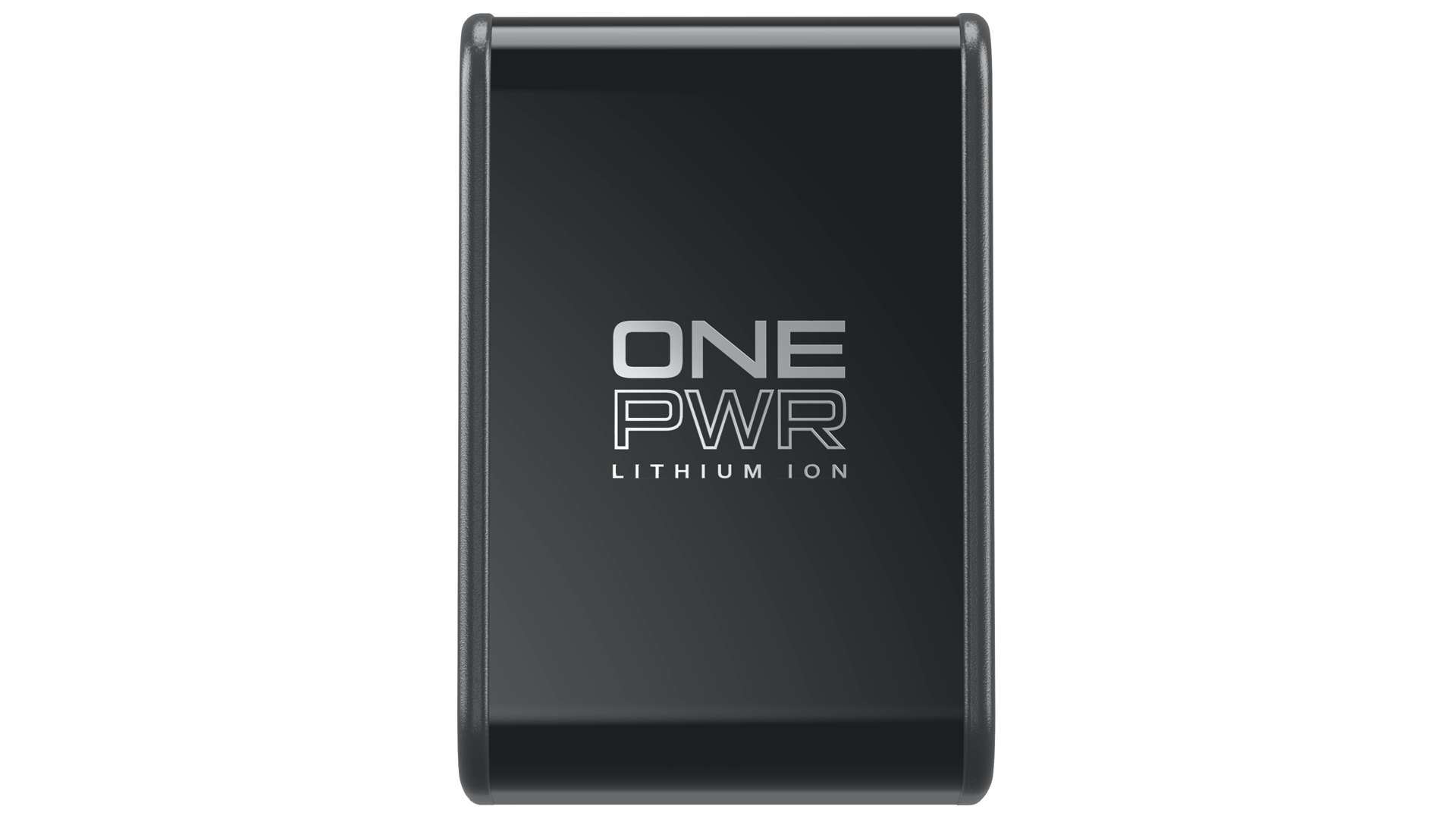
The Vax uses the ONEPWR system of interchangeable batteries with other Vax products
The Vax Blade 4 uses the ONEPWR battery system so if you already have a Vax cordless spot washer or hard floor cleaner then you can easily swap the batteries. In tests, we managed to eke about 45 minutes of running time out of the battery when used in standard mode and about 10 minutes in high mode with the motorised brush engaged.
Both models come with wall mount brackets to keep the units upright when charging or storing away.
Dyson V11 Absolute vs Vax ONEPWR Blade 4: Bin size
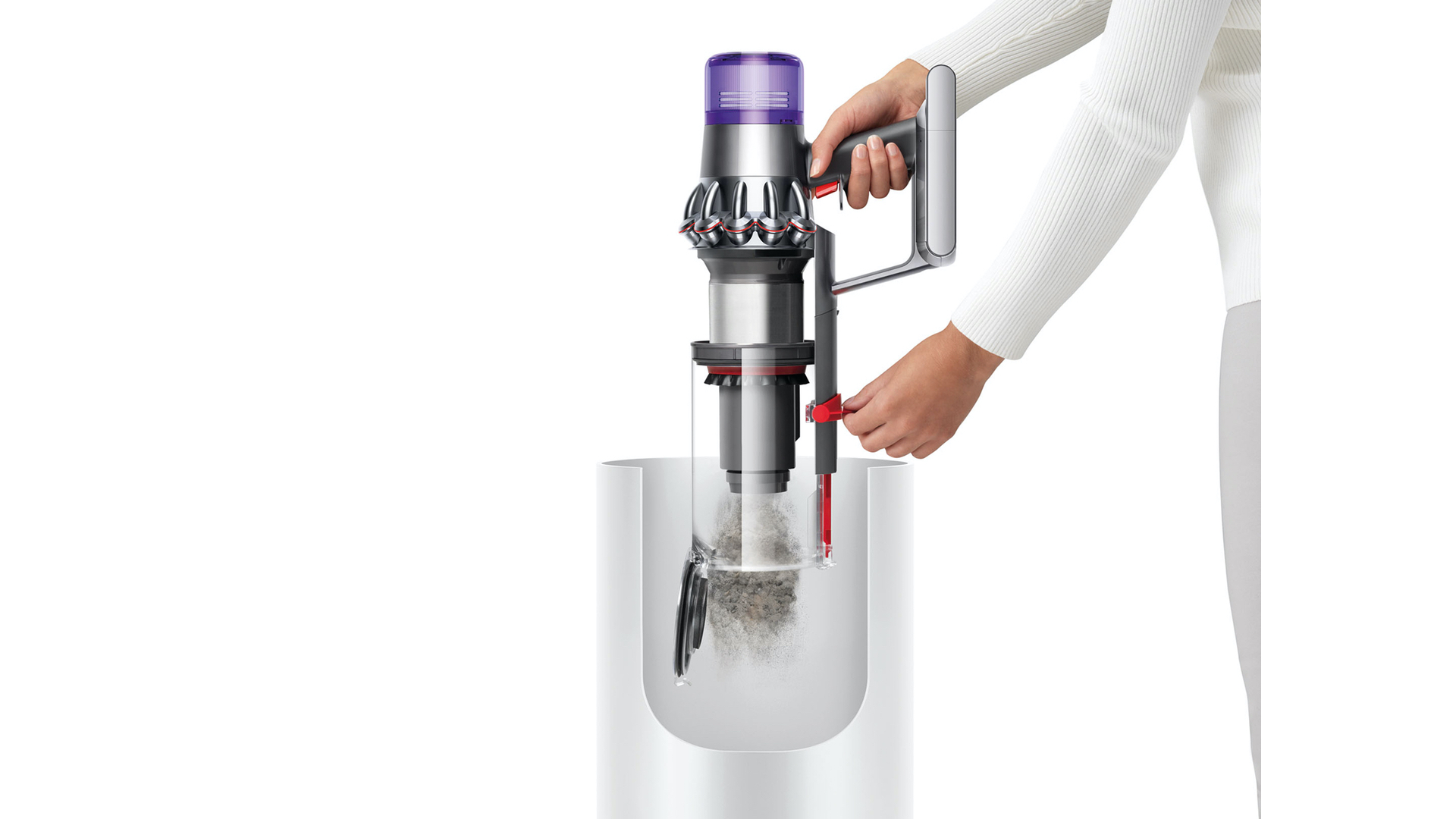
The Dyson V11 Absolute's bin is up there with Gtech's for dust-free emptying
All cordless stick vacs have small bagless dust collectors. The Dyson V11 Absolute wins the contest in this arena by having a 0.76-litre bin that’s an absolute doddle to empty without getting your hands dirty. Simply flick down the red lever and the whole assembly jolts downwards to empty its contents in one fell swoop. The bin can’t be removed from the main motor housing so you will need to carry the whole shebang over to the bin.
The Vax Blade 4’s bin is smaller at 0.60 litres but it can easily be removed from the hand unit. Emptying is a simple affair – simply tap a latch to open its lid. However, it doesn’t eject all dog hair every time so you may need to either tap the housing on the side of the dustbin or get your fingers dusty. While the Vax’s bin is amazingly simple to remove from the motor housing – just squeeze two levers together – it’s a bit awkward to remount.
Dyson V11 Absolute vs Vax ONEPWR Blade 4: Filtration
Both of these vacs excel at filtering out particle matter. The Dyson V11 Absolute uses a six-layer filtration system that is ‘tested to trap 99.97% of particles as small as 0.3 microns’. The Vax Blade 4, on the other hand, has a three-stage system that captures ‘up to 99.8% of particles down to 0.3 microns in size’. If a fraction of a percent to you means one less sneeze, then opt for the Dyson in this instance. Both models’ filter systems can be washed by hand under water, but be sure they’re bone dry before reinserting.
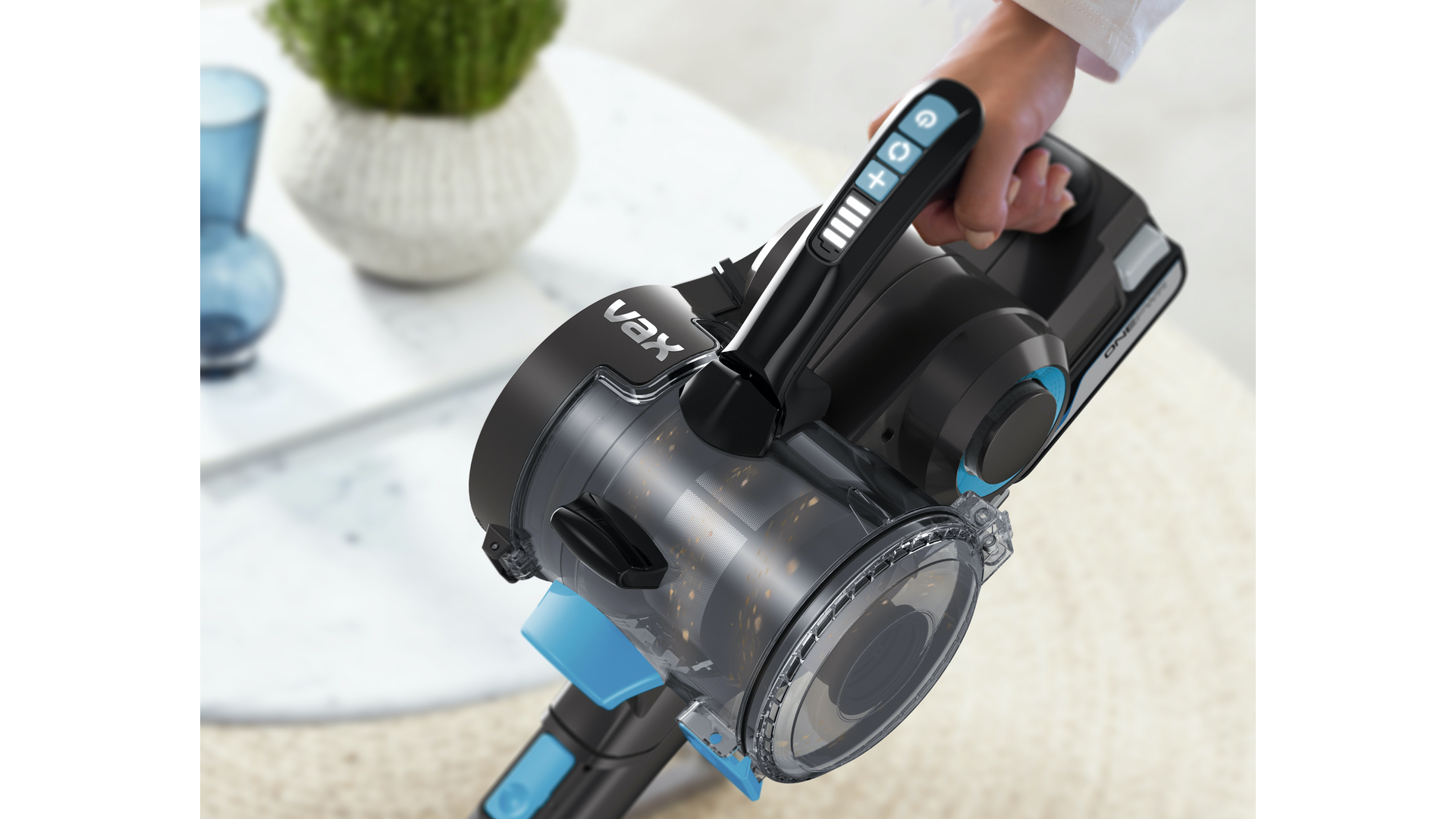
You get two power settings with the Vax plus an extra button to engage the motorised brush head
Dyson V11 Absolute vs Vax ONEPWR Blade 4: Performance
Both of these vacs produce exceptional suction though we found that the Vax in high powered mode with motorised brush engaged was no better than the Dyson in mid-powered Auto mode, where the brush always spins but the suction power is increased or reduced depending on the floor surface.
The upshot is that the Dyson in Auto (mid) mode will clean carpets as efficiently as the Vax at full bore, and for a much longer running time (40 minutes vs around 10 minutes). With the motorised brush disengaged but the power in high mode, the Vax should carry on running for about 45 minutes. This mode is brilliant for hard floors but not so good for medium pile carpets.
Truth is, we never really used the Dyson V11 in Boost mode because it just wasn’t necessary. In fact, Boost mode was so powerful that the earth shifted on its axis a little when we turned it on. Also, we discovered that Boost drinks the battery juice at a phenomenal rate – in about 10 minutes to be imprecise.
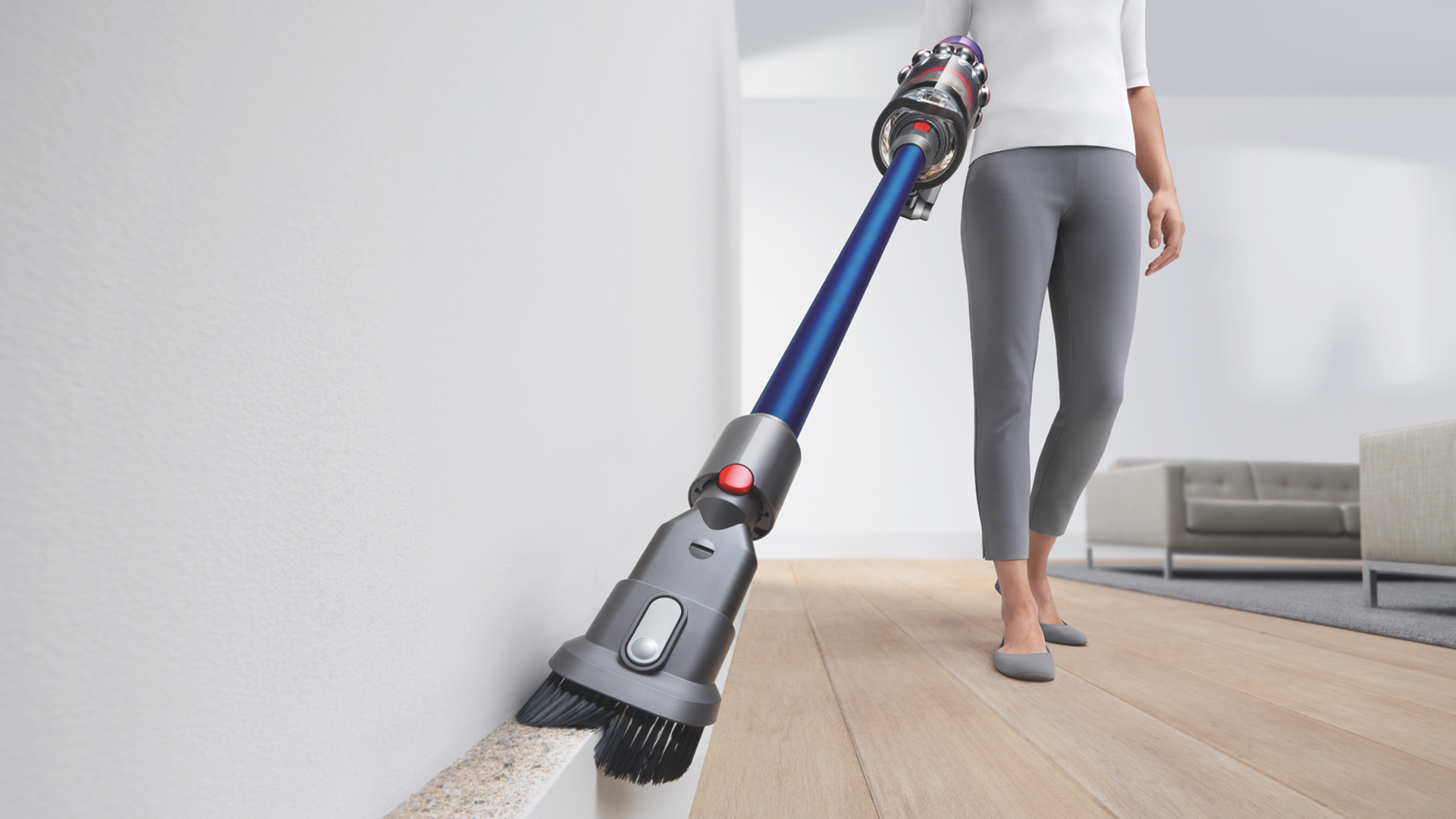
Dyson V11 Absolute vs Vax ONEPWR Blade 4: Verdict
If you have a small home (say two bedrooms and living room), have more hard floor than carpet and are on a tighter budget, then the Vax ONEPWR Blade 4 is an absolute no brainer. Yes, its smaller brush head will require a few more back-and-forth sweeps per session and the brush head is only motorised in full-power mode, but it cleans hard floors remarkably efficiently and will handle carpets very well at the expense of running time. It also has that winning headlight. However, the Vax feels overly cumbersome in hand-held mode and it makes a racket when firing on all cylinders.
Alternatively, anyone with a larger property (two bedrooms and more) and a healthy bank account should unreservedly opt for the Dyson V11 Absolute. It is quite simply the best cordless vac on the market and one of the easiest and most satisfying to use, even in hand held mode. We love the feel of this vac, the amazing way it steers at even the most acute angles, the abundance of extra tools it comes with and, above all, its immense suction power, which is on par with the best corded vacs.

Derek (aka Delbert, Delvis, Delphinium, Delboy etc) specialises in home and outdoor wares, from coffee machines, white appliances and vacs to drones, garden gear and BBQs. He has been writing for more years than anyone can remember, starting at the legendary Time Out magazine – the original, London version – on a typewriter! He now writes for T3 between playing drums with his bandmates in Red Box (redboxmusic).